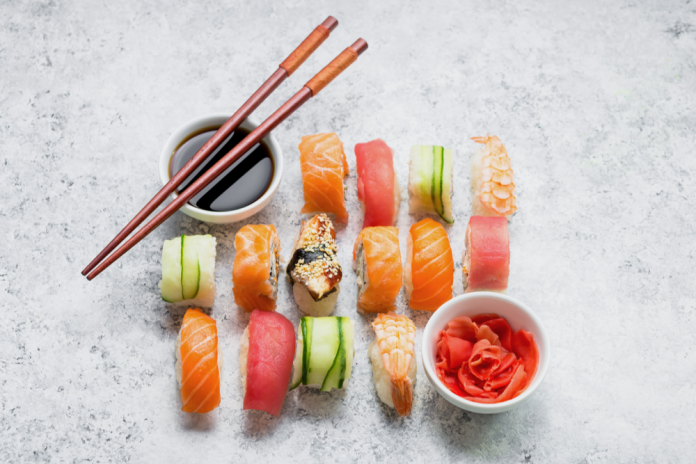The emphasis for senior nutrition is usually on foods to add and encourage intake. However, there are foods the elderly should avoid primarily based on a potential illness risk, particularly related to a weakened immune system that follows with age. In fact, according to the CDC, adults over 65 years old are considered at higher risk for foodborne illness and higher risk of hospitalization for this type of illness.
Curious about what the top foods are to avoid after 60? Discover which foods could appear nutritious for older adults but actually pose a risk for seniors and their health.
Top 10 Foods Elderly Should Avoid (or Be Cautious Of!)
While getting enough nutrients for seniors is a valid nutrition focus, so is knowing what foods the elderly should avoid. While individual needs may vary, this list entails foods recommended to eat in limited quantities, or not at all, for best nutritional practices for seniors.
1. Raw Eggs
Whereas that infamous chocolate chip cookie recipe may be persuasive before the dough hits the oven, it is important to fight the temptation to reduce the risk of salmonella contamination. Limiting raw eggs is an important note for seniors to heed to lower the risk of foodborne illness.
Other products that can have raw eggs that are encouraged to avoid include homemade mayonnaise, eggnog, and hollandaise sauce. Choose commercially made products, as these will be pasteurized to kill bacteria from raw eggs.
2. Undercooked Meats
Much like the worry of raw eggs, undercooked meat also poses a foodborne illness risk, especially on a compromised immune system. Limit or avoid intake of rare steak, raw seafood, and other undercooked meats. Instead, cook or order meats that are cooked well done or cooked all the way through until no longer pink.
When preparing meat and poultry dishes, follow this safe meat temperature guide to ensure greater food safety.
3. Deli Meats
While deli meats offer protein encouraged for seniors, they may also be loaded with sodium and unnecessary, harmful additives.
In fact, continuously gravitating towards processed meats (such as cured bacon, sausage, and ham) has been linked to higher incidences of colorectal cancer, according to the American Institute for Cancer Research.
Canned tuna, salmon, or egg salad can be healthier alternatives to deli meats for sandwiches. Consider mixing with plain Greek yogurt for a higher protein and bone-building nutrient boost!
4. Raw Fish
Although fish is continuously encouraged for its healthy fat content and ample protein supply, consuming it raw is a different (fish)tale. Like undercooked eggs and meat, raw oysters, shrimp, crab, and other uncooked forms should be avoided to lessen the risk of foodborne illness.
To get the benefit of eating fish, cook and consume fish that’s cooked fully through. When in doubt, perhaps sit it out!
5. Sushi
Speaking of raw fish… Sushi should also be hooked with caution. Though some sushi dishes are internally cooked, their intake should still remain warned with caution.
Along with concerns about raw ingredients, sushi can also be high in sodium and lead to high blood pressure and heart disease. This adds another reason it should be food the elderly should avoid.
If dining out and unsure about sushi variations and ingredients, ask your server for guidance.
6. Unpasteurized Dairy and Juice
Calcium-supplying milk and other dairy products are highly encouraged for bone health. However, seniors should dodge unpasteurized milk due to a higher risk for foodborne illness.
Similarly, unpasteurized juice and soft cheeses, including brie and camembert, should also be avoided related to their potential to house harmful bacteria. Either cook soft cheeses, choose harder cheeses over soft cheese and be sure to choose juices that are pasteurized (like most commercially made juices).
7. Soda
Soda is essentially nothing more than sugar and carbonation filling up a can or plastic bottle. Products high in sugar can accelerate the process of demineralization of teeth and bone, which is especially concerning for seniors already nearing the need for dentures and heightening their risk of osteoporosis. Diet soda, too, is discouraged due to numerous health concerns.
Instead of soda, focus on drinking water sweetened with a splash of juice or slices of oranges, lemons, cucumbers, or berries for added natural flavor.
8. Alcohol
Whilst alcohol may be consumed in moderation, it is extremely important to be cautious of its intake in the senior population. Mixing alcohol with prescribed medications may lessen their effectiveness or cause serious side effects. Alcohol may also lower blood pressure and sugar, heightening major health concerns in seniors.
For the utmost safety, consult with a doctor for individual guidance if wishing to consume alcohol.
9. Hard, Tough Foods
Hard candy, raw vegetables, nuts, popcorn, corn on the cob, licorice, or jerky are examples of hard or tough food that should be avoided for seniors.
Whether concerns about dental implants or digestion, a soft food diet can be easier to handle and lower concerns of impairing health.
10. Grapefruit
Grapefruit has many nutritional merits but, unfortunately, it can interfere with many medications seniors may be taking. Don’t assume you can just take them at different times of the day.
Mayo Clinic suggests taking your medication and grapefruit product at different times doesn’t stop a potentially harmful interaction. Grapefruit may cause medication to stay longer or shorter in your system which can impact the effectiveness.
Check with your doctor if unsure about grapefruit and your individual medications. Also check if other citrus fruits, like oranges, can be substituted.
Foods Seniors Should Avoid In Summary
Seniors are at a higher risk for foodborne illness, maybe taking medications for disease management, and may have other related digestive or dental concerns. For these reasons, there are foods that seniors may want to avoid and limit.
Raw eggs, fish, undercooked meat, unpasteurized dairy, and juice can all increase the risk for foodborne illness in the elderly. Sushi and deli meats may also raise concerns about food safety and also for higher sodium levels.
Alcohol and grapefruit can dramatically interfere with medications, and hard foods can cause dental and digestive discomfort.
References:
Katherine Zeratsky RD. Grapefruit and medications. Mayo Clinic. Published February 22, 2022. https://www.mayoclinic.org/healthy-lifestyle/consumer-health/expert-answers/food-and-nutrition/faq-20057918.
People with a higher risk of food poisoning. Centers for Disease Control and Prevention. Published January 24, 2019. https://www.cdc.gov/foodsafety/people-at-risk-food-poisoning.html. Smith B. Processed meat and cancer. American Institute for Cancer Research. Published March 2, 2020. https://www.aicr.org/resources/blog/processed-meat-and-cancer/.






